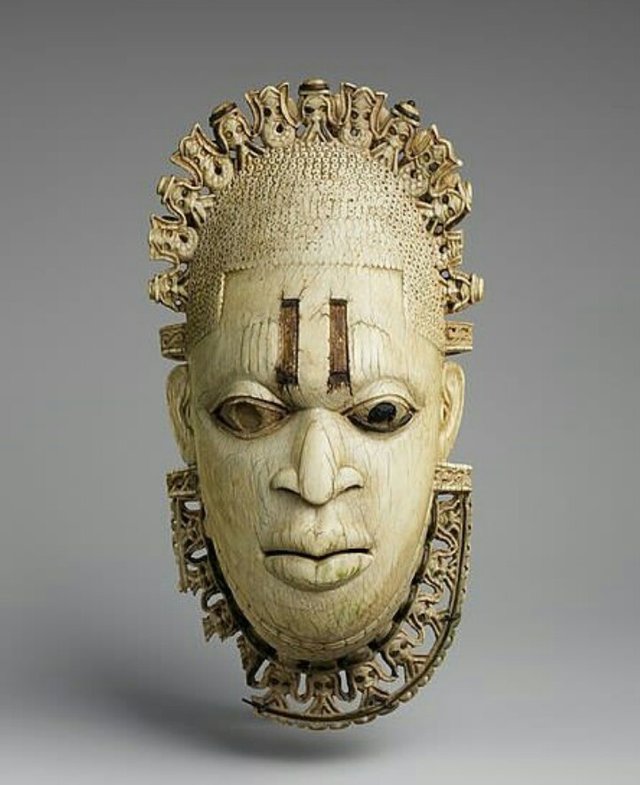The 16th century Benin ivory mask
The Benin ivory mask is a miniature sculptural portrait in ivory of the powerful Queen Mother
Idia of the 16th century Benin Empire , taking the form of an African traditional mask .
This 16th century ivory portrait of Queen Mother
Idia is among The Met's most celebrated works. It is one of four related ivory pendant masks, that were among the prized regalia of the Oba of Benin , among the prestige items taken by the British during the punitive expedition of 1897 .
Material: Ivory, iron inlay
Height: 9 3/8 in (23.8 cm)
Width: 5 in (12.7 cm)
Depth: 3 1/4 in (8.3 cm)
Created: Early 16th century
They are made of ivory, long and ovular in shape, and thinly carved, approaching semiopaqueness. The similar British Museum and Metropolitan pendant masks have elaborate ornament at their hair and collar. Each mask's gaze is accentuated with iron inlay at its pupils and lower eye outline, and the eyes are slightly diverted by the eyelids. This use of inlay departed from the ways in which Europeans used ivory. Above the eyes, the four supraorbital marks are associated with Benin women. The masks' facial features are symmetrical and skillfully precise. Their lips are parted, nostrils slightly flared, and hair dense with tiny coils and a rectilinear hairline. The masks' expression of "impersonal coolness" reflected the stylistic conventions of the Oba's ivory carvers guild, with a naturalism typical of craft in early Benin art.

Hi! I am a robot. I just upvoted you! I found similar content that readers might be interested in:
http://www.revolvy.com/topic/Benin%20Pendant%20Mask&item_type=topic
Thanks...